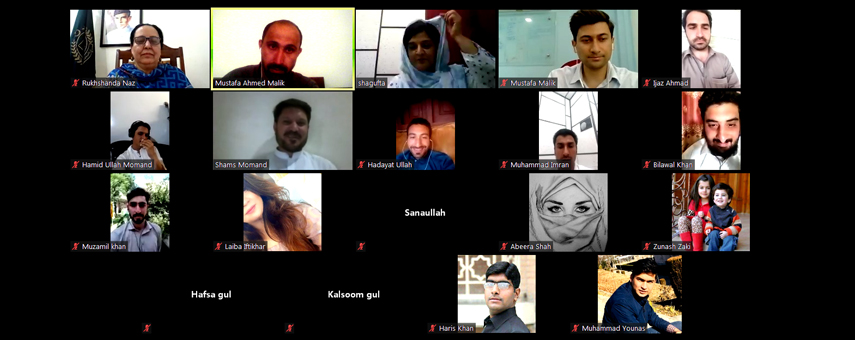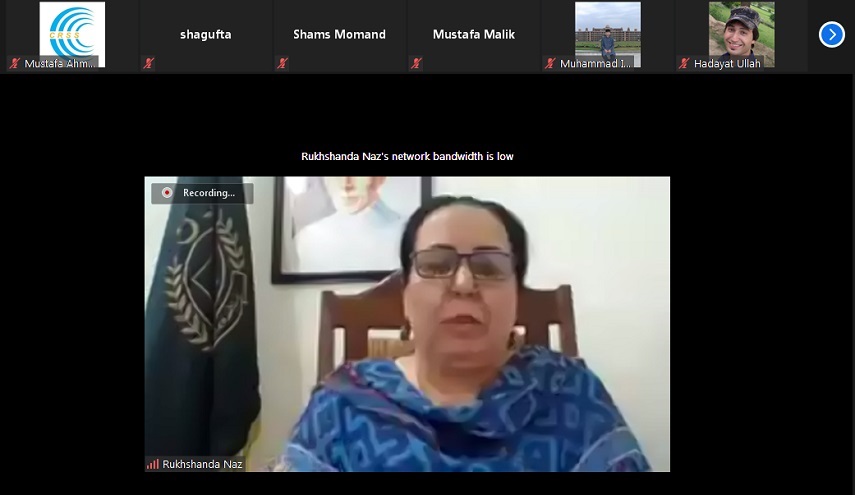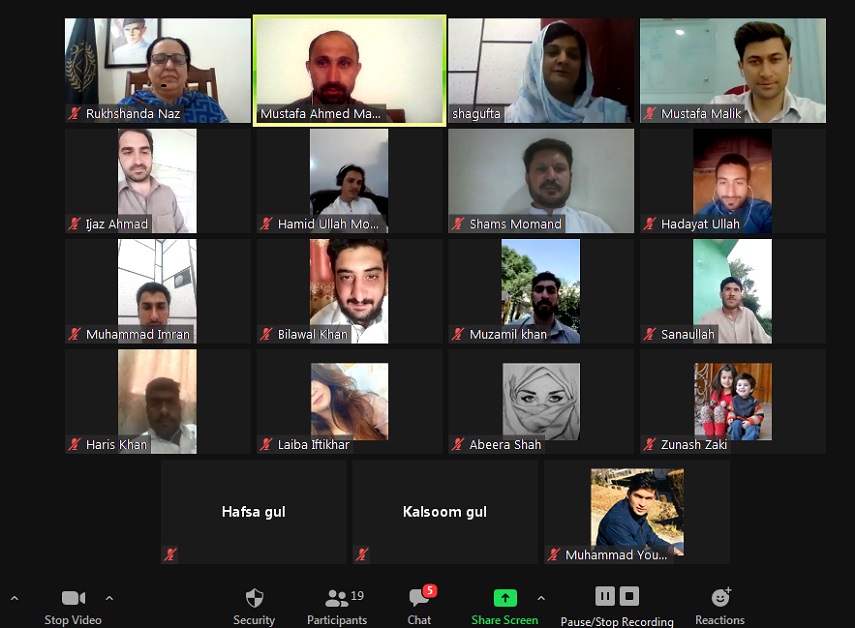Only by reporting the incidents of harassment and other violations of their rights, and choosing to seek legal services available to them, can women prevent such traumatic and violent encounters in the future, said the Ombudsperson, Khyber Pakhtunkhwa, Ms. Rakshanda Naz, during the seventh round of Ulasi Taroon Online Workshops.
She noted that the provision of legal services to citizens, especially the vulnerable groups, is extremely important during a crisis situation. Lack of access to legal services during the crises can be chaotic and Ombudsperson has been trying to ensure its availability during the pandemic and be able to respond to those seeking legal services and guidance.
The institutions providing legal services should be impartial and view all the parties to the dispute indiscriminately. Such an institutional neutrality is of paramount importance, especially in the patriarchal societies. Institutional capacity is also very important to promote gender equality and for proportionate response to women seeking legal and range of other social services, during crises and otherwise.
Gender inclusive humanitarian response is key to every crises and COVID-19 is no exception. Ombudsperson office also played its role to connect different government institutions for a synergized and coordinated response. You need to have indiscriminate equality in the society to deal with the crises which affect everyone indiscriminately.
The ranking of Pakistan in the global gender gap index is alarming with regard to education, health and economic participation, whereas, gender equality is explicitly enshrined in the constitution and also an international commitment of the country. We have seen unprecedented pro-women legislation in the last two decades. All these legal provisions must translate into actions and implementation. We need to have a comprehensive institution with nationwide presence as an authority for women protection and to respond to the incidents of violence.
The educational curricula and media programming should also be inclusive of gender perspectives and aim to promote gender equality. During the crisis like COVID-19, the social media should be used responsibly with cognizance of the sensitivities living in the society, where posting such content should be avoided that can make someone feel deprived.
Youth engagement on the issues key to social cohesion is need of the hour, given their leadership roles in the future. CRSS is engaging the right kind of audience i.e. cultivating the potential of the young to prepare a critical mass as an investment in the future of country’s social stability and cohesion.
The doors of ombudsperson offices are always open for protection against harassment of women at the workplace. Ombudsperson KP office currently is successfully dealing with the cases of harassment, while also referring other related cases of cyber-crimes and domestic violence to appropriate forums.
The event was participated by youth leaders from different public and private sector universities across Khyber Pakhtunkhwa, and held as part of the Center for Research and Security Studies’ (CRSS) efforts to continue to cultivate the young through online conduits for communication, in the absence of physical platforms of youth engagement and development.
About Ulasi Taroon:
Ulasi Taroon is a counter radicalization initiative of CRSS that aims to address the radicalization challenges and extremist ideologies and foster social cohesion in KP through a discourse anchored in the core constitutional values. The endeavors aim cultivate and sensitize the target groups in these core values highlight the criticality of abiding by these concepts – such as adherence to rule of law, primacy and sanctity of constitution, equal citizenry, respect for fundamental human rights, tolerance for diversity and different opinions, inclusive democracy and good governance – as a measure of fostering social cohesion and peaceful co-existence.



